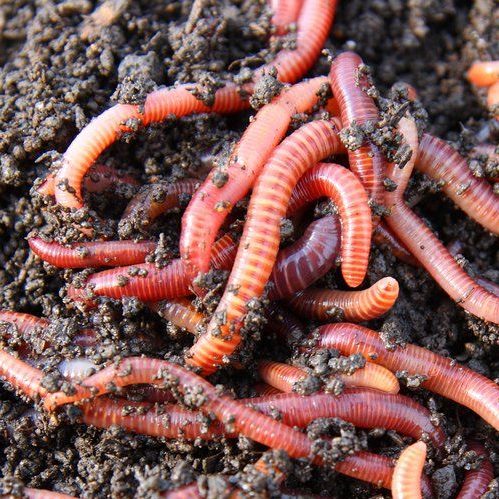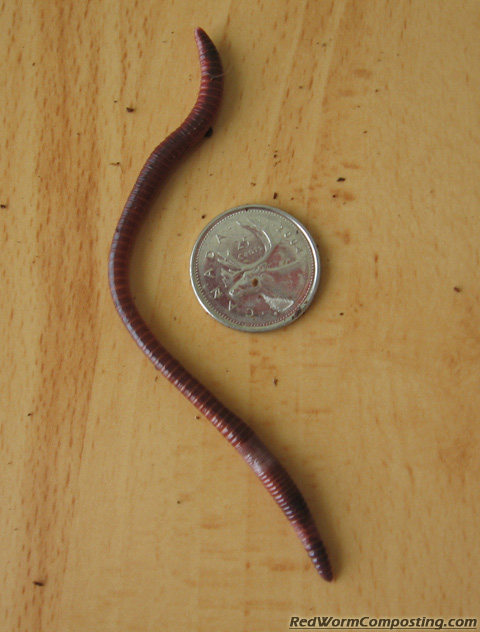Choose Lake Hickory Bait for High-Quality Worms, Tackle, and Supplies
Choose Lake Hickory Bait for High-Quality Worms, Tackle, and Supplies
Blog Article
Red Wigglers 101: Every Little Thing You Need to Know for Thriving Gardens
Red wigglers, or Eisenia fetida, play an important duty in sustainable horticulture methods, acting as reliable decomposers that transform natural waste right into beneficial vermicompost. Comprehending their habitat, dietary choices, and the myriad benefits they use can change your gardening technique (Red Wiggler Express). As these worms thrive in certain conditions, their care and monitoring are necessary for optimizing their contributions to dirt wellness. The concern stays: what actions can you require to harness the full potential of these impressive microorganisms in your own yard?
Understanding Red Wigglers

Red wigglers thrive in atmospheres rich in natural product and moisture. Red Wiggler Express. They possess an unique digestive system that enables them to process food scraps swiftly, secreting castings that are loaded with vital nutrients such as nitrogen, phosphorus, and potassium. These spreadings improve soil structure, boost water retention, and foster valuable microbial activity, all of which add to durable plant wellness
Moreover, red wigglers can make it through in varied problems, making them adaptable to numerous horticulture methods, consisting of interior and outdoor composting systems. Their capacity to take in huge amounts of organic waste daily positions them as valuable allies for both home garden enthusiasts and business growers. By including red wigglers into horticulture initiatives, one can considerably boost soil fertility and support lasting horticulture practices.
Ideal Habitat for Red Wigglers
Developing an optimum setting for red wigglers is important for optimizing their composting abilities and total health. Red wigglers grow in damp, dark, and well-aerated environments, which carefully resemble their native environments in ground cover and rotting organic matter. A suitable environment must supply a temperature range between 55 ° F and 77 ° F(13 ° C to 25 ° C), as severe temperatures can stress or harm the worms.
The bed linens material, such as shredded newspaper, cardboard, or coconut coir, ought to be maintained wet yet not excessively damp, as too much moisture can bring about anaerobic problems harmful to worm health. Furthermore, a pH level in between 6.0 and 7.5 is optimal, making sure a well balanced environment.
Proper aeration is equally important; it permits oxygen flow and protects against the build-up of harmful gases. A container or container made for vermicomposting need to have drain holes to remove excess moisture and promote airflow. Routine surveillance of these problems is necessary for preserving a flourishing red wiggler population, eventually improving their effectiveness in breaking down organic waste and improving garden soil.
Dietary Requirements and Preferences

Red wigglers show certain choices; they are specifically keen on softer, breaking down materials over more difficult or even more fibrous substances. It is necessary to prevent feeding them citrus peels, onion, and garlic in huge quantities, as these can be unsafe. In addition, meat, milk, and oily foods must be left out, as they can attract bugs and produce unpleasant odors.
(Charlotte NC Worms For Sale)To maintain optimum wellness, a well balanced mix of green and brownish materials is advised. Environment-friendly products, such as vegetable scraps, supply nitrogen, while brownish products, like cardboard and dried leaves, supply carbon. Keeping track of the dampness content and ensuring a constant food supply will further improve their development and composting capabilities. By satisfying their nutritional requirements, gardeners can foster a thriving populace of red wigglers in their garden compost systems.
Benefits of Making Use Of Red Wigglers
The exceptional advantages of making use of red wigglers in gardening expand far past their duty in composting. These versatile organisms add considerably to dirt wellness, boosting vitamins and mineral schedule and advertising microbial task. By freshening the soil as they burrow, red wigglers enhance drainage and origin infiltration, developing an optimum environment for plant growth.
Moreover, red wigglers are efficient recyclers of organic waste, transforming it into nutrient-rich spreadings that function as an outstanding all-natural plant food. These spreadings contain beneficial bacteria and vital nutrients, such as nitrogen, phosphorus, and potassium, which are vital for plant development. The slow-moving launch of nutrients from worm castings ensures a consistent supply, lessening the threat of nutrient leaching and promoting sustainable gardening techniques.
Furthermore, the visibility of red wigglers can assist suppress soil-borne plant conditions. Their digestive procedures produce compounds that hinder hazardous microorganisms, therefore boosting plant health. Lastly, using red wigglers promotes a more sustainable horticulture approach by reducing reliance on chemical plant foods and advertising a closed-loop system, where waste is changed right into important resources. On the whole, including red wigglers into gardening practices uses a multitude of eco-friendly and farming benefits.
(Hickory NC Worms For Sale)
Composting With Red Wigglers

To launch a successful vermicomposting system, choose an appropriate container with appropriate ventilation and drainage. The optimal environment for red wigglers consists of a damp, dark setup with temperature levels in between 55 ° F and 77 ° F. Begin by layering shredded paper, cardboard, and food scraps, making sure a balanced mix of carbon and nitrogen-rich products.
Red wigglers grow on vegetable peels, fruit scraps, coffee premises, and eggshells, while staying clear of meat, milk, and oily foods that can draw in insects. Frequently keep an eye on wetness levels; the bed linens must be wet but not soaked. Harvest worm spreadings every couple of months by separating the worms from the garden compost, which can then be made use of directly in gardens or saved for later use.
Applying vermicomposting not just lowers garbage dump waste yet also improves garden soil, advertising healthy and balanced plant development and lasting horticulture practices. Accept this environment-friendly technique to enhance your gardening undertakings.
Verdict
In recap, red wigglers are essential organisms for enhancing yard productivity through reliable composting. Their certain habitat needs, nutritional preferences, and considerable advantages contribute to lasting horticulture techniques. By utilizing red wigglers, garden enthusiasts can considerably boost dirt high quality and nutrient schedule, cultivating much healthier plant growth. Embracing the method of vermicomposting not only sustains waste reduction but additionally promotes an environmental balance within yard ecosystems, inevitably resulting in growing and resistant yards.
Report this page